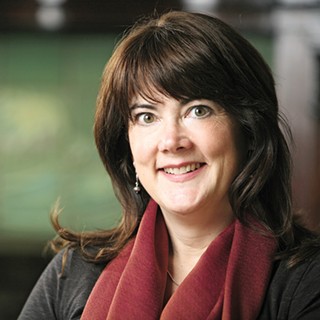A growing chorus of parents, health professionals and child development experts say it’s time for coaches, even those who are “just” volunteer parents, to be certified.
In Spokane Public Schools, although coaches are required to attend an annual rules training and complete online lessons in concussion protocol, there is no requirement for any sport-specific certification. The Washington Interscholastic Activities Association establishes some standards for training coaches after their third year of coaching, but the requirements are basically voluntary, far from standardized and only require “80 percent” of coaches in a school to be in compliance. For most youth sports leagues, simply passing a background check is enough.
ESPN.COM columnist Gregg Easterbrook is blunt in his advocacy: “In most states you have to have a license to cut somebody’s hair,” he told PBS’s Frontline, “but you can be a high school football coach and insist that people run up hills in 90-degree weather, even when they are vomiting and shaking and trembling, and you don’t need a license for that.”
Licenses and certifications are available through online study from the National Alliance for Youth Sports, the American Sport Education Program, the Program for Athletic Coaches Education and the Positive Coaching Alliance.
MOMS TO THE RESCUE
The soccer mom, shuffling kids from sport to sport, has become a national icon. Women serve as team managers, organize snacks and spend countless hours cheering, but they are rarely in the mix when it comes to coaching and administration. National studies have shown almost no boys over 10 will have a coach who is a woman. And women are pretty much absent from the management side of the $5-billion-a-year youth sports industry.
“It isn’t females … who have built the elaborately over-organized system of sports for [kids] in the United States with enormous emphasis on competitiveness and winning,” writes Eli Newberger, a pediatrician and child development expert who wrote The Men They Will Become.
While there are many caring and talented male coaches out there, Newberger’s goal is a better balance between men and women in positions of leadership.
Brooke de Lench, founder of the website MomsTeam, agrees, saying women are more interested in developing a happy medium between competition and cooperation, and tend to be more safety-conscious. “A mother’s instinct is to be a calming influence and peacemaker,” writes de Lench, “and to emphasize how every player is the same, not different.”
SMALL, MEDIUM, LARGE
Organizing teams by birthdate cut-offs means some lucky kids — those born just after the cut-off — will forever be the biggest and oldest on their teams. Grouping kids by size has attracted the attention of Harvard sociology researcher Hilary Levey Friedman, who is studying whether kids whose birthdays fall at the younger end of the age bracket for a sport tend to have more injuries. If that’s the case, and she suspects it is, “it may prompt youth sports programs to group kids by size, rather than age … reducing the number of injuries that result from bigger, stronger and more skilled players colliding with smaller, weaker, less skilled players.”
MESSAGE TO PARENTS: CHILL!
It would be crazy to have a child gifted in the study of maps specialize in geography at the age of 12, forgoing any future classes in English, math or science. But that’s what’s happening in sports, as kids are under more and more pressure from their parents and coaches to specialize in a single sport even before middle school. That’s also fueling what health care professionals are calling an epidemic of sports injuries to kids.
It’s time to rethink, says Jeffrey Rhoads, author of The Joy of Youth Sports. He argues that parents should think of sports “as a general education rather than preparing for a specific career.” That means exposing kids to a variety of team sports, but also individual sports like tennis and golf that they can enjoy later in life.
Rhoads also cautions enthusiastic parents against getting too emotionally wrapped up in their child’s sport. It can be particularly harmful when the parent’s level of interest in the sport actually exceeds the child’s. “The child, in turn, develops a distorted perspective of sports,” says Rhoads, “and may improperly relate success in sports to his or her parent’s love.”
A WHOLE NEW PARADIGM
“Sports has just turned us upside down in so many ways,” says Dr. Jerry Krause, director of men’s basketball operations for Gonzaga University. “We can’t even tell right from wrong.”
Even though he’s right there on the bench with Mark Few, Krause is not your everyday coach; he’s a sports philosopher — in fact, he was a professor of sports philosophy at the U.S. Military Academy at West Point. The former head coach at Eastern Washington, he’s written more than 30 books on coaching basketball and holds a doctorate in physical education. He‘s earned the title of “expert.”
For the past eight years, Krause has also been working with an organization called Be Like Coach, based on the teaching principles of legendary UCLA coach John Wooden.
Now Krause and the other members of the Be Like Coach team hope to turn youth sports upside down.
“Sport in America is contaminated by the top-down influence of pro sports, and, incidentally, from big-time college sports as well,” Krause says. “We want to take a bottoms-up approach. We want to evolutionize youth sports. We’re changing a culture. We think it can be a difference-maker, not only for kids, but it has applications to our schools, to our country.”
The key, Krause says, is better coaching and better parenting. By establishing teaching communities, sports can evolve to offer kids what is most important: the opportunity to learn not only about the sport, but about themselves.
Now, after years of research and planning, Be Like Coach tested three pre-pilot programs during the 2011-12 school year. One of them is at Spokane’s St. Aloysius Catholic School (the others were in Arizona and Louisiana). Next year, more pilot programs are planned across the nation. The most revolutionary concept? All kids make the team, and everybody gets equal practice time and equal playing time.
“We’ve had resistance in our first year,” says Krause. “‘My kid’s too good for this.’ That’s not what youth sports should be about. If kids don’t learn from youth sports, it’s just a waste of time for them,” Krause adds. “And it’s probably harmful.”




















